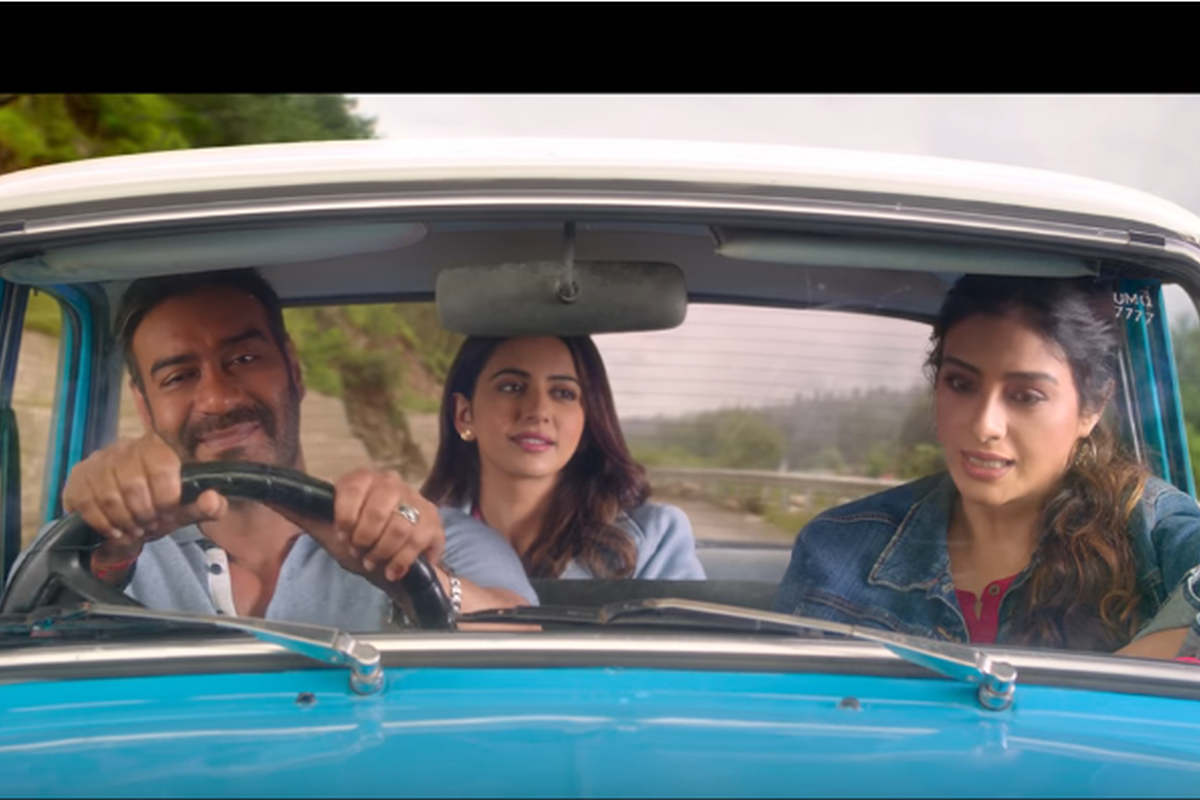Rakul Preet Singh’s cinematic journey from ‘Yaariyaan’ to ‘Dhruva’
Explore Rakul Preet Singh's cinematic evolution from her Bollywood debut in "Yaariyaan" to her standout roles in "De De Pyaar De," "Chhatriwali," "Sarrainodu," and "Dhruva."
De De Pyaar De ended on a hint of a sequel, and if the “Ranjanites” were to bring one, we hope it’s not as long and deliberate as the former.

( Photo: YouTube/@T-Series)
De De Pyaar De Review: Through its trailer, Akiv Ali’s directorial De De Pyaar De, with its set-up, music and comedy, looked like a break from the films that had been releasing since the beginning of the year — high end drama and serious content (barring Total Dhamaal and SOTY2). It had the feeling of being a coming-of-age romance comedy. However, the finished product has just Luv Ranjan stamped all over it.
De De Pyaar De tried to establish its characters and their relationships, particularly the other woman and man relationship between Ajay Devgn and Rakul Preet Singh in the first half of the film. Devgn plays a 50-year-old man, separated from his family, and Rakul, a 26-year-old single woman in London. More than trying to convince themselves that age gap is just a number, the characters were trying to normalise and justify their relationship to the audience.
The need to explain and tell plagues the second half of the film as well. Tabu (Devgn’s ex-wife) and the family that Devgn returns to in the second half to introduce his new girlfriend, Rakul is all about that.
Advertisement
Rakul plays a girl next door character, the only definition of modern independent woman that Luv Ranjan understands. The independent woman as carefree and selfish is on one end of the spectrum, and the responsible, maternal woman at the other end of the empowered-woman-narrative. While Ajay Devgn played the tall, dark, brooding old man, who with his one-liners, not-so-dramatic behaviour and lifestyle manages to make everyone responsible for their failures and life, but himself.
His confession in the beginning of the film, that I am not a “good father-husband” is enough by the makers’ standards to relieve him of all judgement. While suspension-of-judgement is applicable to Devgn, the same does not apply to Rakul. The independent woman has more responsibilities on her head. That does not mean that the text judges her too harshly. For a change, that was not the case, the ex and the new girlfriend were not engaged in a typical cat and mouse game. Instead, both women were just the same. In fact, Tabu is the older version of Rakul, very much established and reaffirmed at the end of the film when she goes to London to convince Rakul that all she needed was a closure to her husband-wife relationship. To convince her, she used the same line-of-thought that Rakul had used to woo Ajay Devgn in the beginning of the film: “Ek baar sone se pyaar toh nahi ho jata, toh ek baar sone se pyar tut kaise jata hai.” It may sound problematic to many, but seemed to make sense to both women.
While ideally, in the old-school Bollywood format, the husband would reunite with the wife, as most of the parent films with similar plot lines have done, De De Pyaar De shifted the narrative to normalising divorce and separation of parents to the right-to-pursue lives outside the protective garb of family and societal relations. The struggle to live life on your own terms without the baggage of societal and family pressure, given a moment’s space in Tabu’s character, could have taken the film somewhere if it would have been pursued rightly.
Obviously, that social message had to be given to a veteran like Tabu who delivered it without trivializing and making it look comic. Without intellectualizing the comedy too much, one can move to the music of the film, which had tracks for all moods — happy, happy-sad, dance number, wedding song etc — to make the film look and feel like a complete family masala entertainer.
Apart from the context of the film, its length was a problem. Too much time went into establishing Rakul and Ajay’s relationship in the first half, and in the second half giving closure to his previous marriage and all other relationships.
Javed Jaffrey, Kumud Mishra and Jimmy Shergill were a delight to watch, though all were stuck in the writing of the film that could have been majorly worked upon.
While Rakul Preet tried her best to lend gravitas to a poorly written character, Ajay Devgn played himself, and Tabu tried to fit into the set-up of the film, even as De De Pyaar De dragged on and on.
The meta-narrative Singham track in the middle was probably the best comic element in the film. Apart from that, a few instances here and there kept it afloat until the second half of the film.
De De Pyaar De ended on a hint of a sequel, and if the “Ranjanites” were to bring one, we hope it’s not as long and deliberate as the former.
All in all, the film is a piece of popular fiction with the makers’ personal ideology stamped all over it. If the Hindi film industry is experimenting with newer styles, genres and content, there is also the old-school narrative and stereotype fed under the garb of modernity trying to reestablish its hold over a change that it inevitable and much-awaited. The struggle between the old and new, much like the struggle between the older woman and younger woman narrative in the film, will continue and “art” justified through “culture” and “tradition” will continue to flourish and sell.
Advertisement